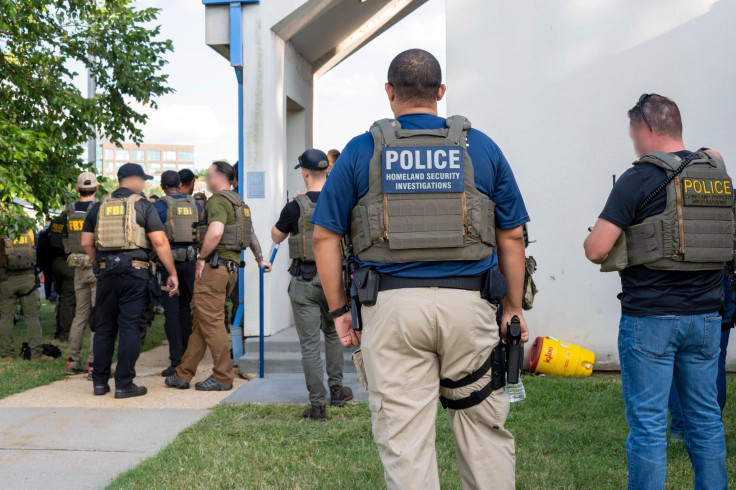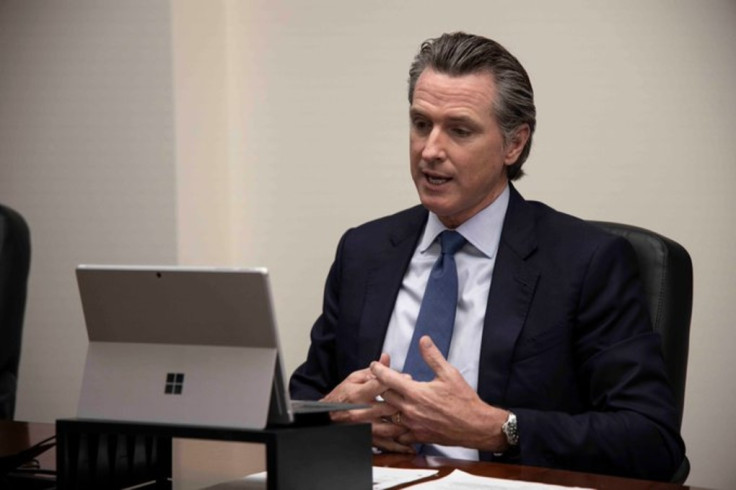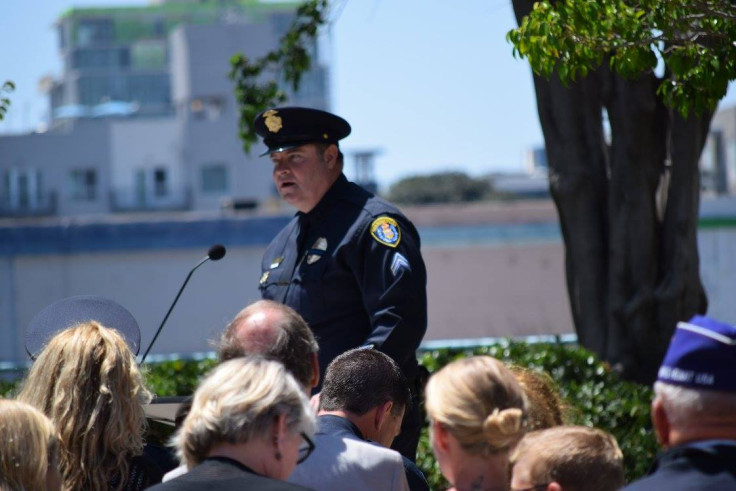'Despicable and Dangerous': Homeland Security Official Blasts California's Law Enforcement Face Cover Ban
A new California law sparks a row with authorities, with federal officials claiming it endangers officers and is unenforceable.
The Department of Homeland Security (DHS) has blasted California's new 'No Secret Police Act,' calling it 'despicable' after Governor Gavin Newsom signed the measure into law, making California the first state to ban most law enforcement officers, including federal immigration agents, from wearing face-concealing masks while on duty.
In a statement issued before the signing, DHS Assistant Secretary for Public Affairs Tricia McLaughlin urged Newsom to veto the bill, warning it would put officers at risk.
'Our federal law enforcement officers face a 1000% increase in assaults against them, unprecedented online doxing, and are having cars used as weapons against them,' McLaughlin said. 'Once again sanctuary politicians are trying to outlaw officers wearing masks to protect themselves from being targeted by known and suspected terrorist sympathisers.'
Newsom Defends Law
Governor Newsom dismissed the federal criticism, framing the law as an issue of public trust rather than officer safety.
'Public safety depends on transparency, not fear,' he said at the signing ceremony in Los Angeles. 'California is putting an end to Trump and Miller's secret police tactics and making sure schools and hospitals remain what they should be: places of care, not chaos.'
He added: 'Our places of learning and healing must never be turned into hunting grounds. Families should not live in fear of sending their children to school or visiting the doctor.'
A Response to ICE Raids
The legislation was prompted by immigration raids in Los Angeles, where masked ICE agents were filmed detaining immigrants. Civil rights groups said the use of unidentified officers spread fear in communities and risked impersonation by criminals posing as law enforcement.
Supporters of the bill argue that requiring officers to show their identities restores confidence in public institutions.
Legal Uncertainty
Whether California can enforce the mask ban against federal agents remains unclear. Legal scholars point to the Supremacy Clause of the US Constitution, which gives federal law primacy over state legislation. Washington could argue that the law interferes with federal duties and is therefore unconstitutional.
DHS officials insist that federal officers already identify themselves with badges, vests and marked vehicles, but say facial coverings remain essential to protect agents from retaliation.
📢Doxxing federal agents is a crime. Our federal partners WILL prosecute to the fullest extent of the law.
— U.S. Immigration and Customs Enforcement (@ICEgov) June 21, 2025
☎️Report doxxing: 866-DHS-2-ICE https://t.co/sGzkXbooQr
Pushback from Police Unions
The law has also sparked opposition among California's police unions. Brian R. Marvel, president of the Peace Officers Research Association of California, which represents more than 87,000 officers, warned: 'Our members are being unfairly targeted by state leaders. This law makes California less safe and puts officers at risk simply for doing their jobs.'
Critics note that while the bill primarily targets federal officers, it also applies to state and local law enforcement, who do not benefit from the same federal legal shields.
Political Flashpoint
The ban has sharpened the political divide between California and the Trump administration. For Democrats, it is a bold stand against what they describe as 'fear tactics' in immigration enforcement. For federal officials, it is another sign that California is undermining federal authority as a sanctuary state.
Analysts predict legal challenges that could ultimately reach the Supreme Court, setting a precedent on the limits of state power over federal enforcement.
In the meantime, the mask ban has become a rallying cry on both sides of the immigration debate.
© Copyright IBTimes 2025. All rights reserved.
























